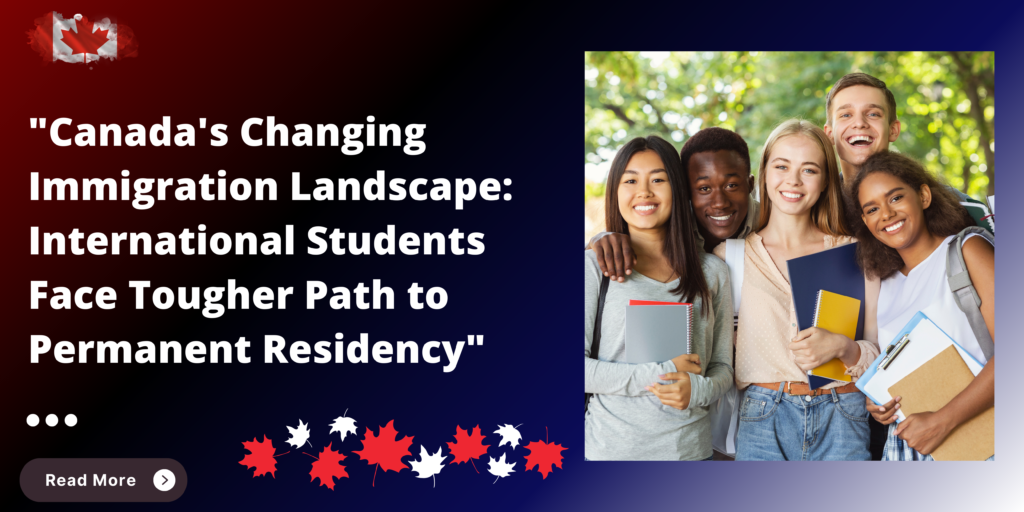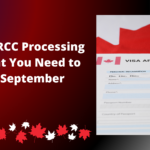Canada has long been a beacon for international students, promising a route to permanent residency through its immigration programs. By the end of 2023, the country had issued post-graduation work permits (PGWPs) to a record 396,235 international students, a number that has nearly tripled since 2018. These graduates have played a crucial role in Canada’s workforce across various sectors.
However, recent policy changes are narrowing the path to permanent residency for many of these individuals, creating uncertainty and frustration. Despite Canada’s ambitious 2024 immigration target of approximately 305,000 skilled workers, many temporary residents, including international graduates on PGWPs, find themselves excluded from the new criteria for permanent residency.
Shifting Expectations: The Impact of Policy Changes
For years, international students came to Canada with the expectation that completing their education and gaining Canadian work experience would lead to permanent residency. The PGWP program was designed to facilitate this transition, offering a pathway from temporary status to PR.
Yet, between 2021 and 2023, significant changes disrupted this trajectory. While Canada initially granted PR to 90,000 temporary workers and PGWP holders as part of an emergency measure, these provisions have since been revoked. Additionally, the criteria for PR through the Express Entry system have shifted, now prioritizing French speakers and individuals in specific fields like healthcare, skilled trades, agriculture, transportation, and STEM over candidates with Canadian education and experience.
The Human Cost of Policy Shifts
These changes have left many international graduates in limbo. Policy experts estimate that between 70,000 and 130,000 PGWP holders will see their permits expire in 2024 and 2025, with few options for visa extensions or PR invitations. The result is a growing sense of anxiety among those who have invested years in Canada, only to face an uncertain future.
Vasanthi Venkatesh, a law professor specializing in immigration law, describes the situation as one of considerable distress. “There is a lot of panic amongst people who have now been here for years studying and working and paying their taxes,” she notes.
Voices of Frustration and Calls for Reform
The frustration is palpable among those affected. Sarabjit Singh, a mechanical engineer from India, and Mehakdeep Singh, an HVAC technician, both face uncertain futures as their PGWPs expire. Singh, who has worked hard in Canada, questions the fairness of the system. “I paid so much to study here, and I’ve been working hard, paying my taxes. What did I do wrong?” he asks.
As the number of PGWP holders facing expiration grows, so does the call for policy reform. Groups in Brampton are actively protesting, demanding visa extensions and a fair pathway to permanent residency. Parmbir Gill, a labor lawyer, emphasizes that the government’s previous promises of a pathway to PR need to be honored.
Exploitation and Uncertain Futures
In the midst of this uncertainty, some individuals are falling victim to exploitation. Unscrupulous recruiters are offering fraudulent job opportunities through the Labour Market Impact Assessment (LMIA) process, preying on the desperation of international graduates. These scams often involve exorbitant fees and false promises, leaving many in even more precarious situations.
Looking Ahead: The Need for Policy Solutions
In January, Ottawa imposed a cap on international student admissions and ceased issuing PGWPs to students from certain private colleges. While these changes target specific issues, they do little to address the immediate plight of those already in Canada facing expiring PGWPs and no clear path to PR.
As Canada’s immigration policy evolves, it is crucial for the government to address the growing discontent and find solutions that honor the commitments made to international students. Whether through policy reform, visa extensions, or guaranteed pathways to permanent residency, action is needed to support those who have contributed their skills and education to Canada’s workforce.
The challenge now is to reconcile the need for a skilled workforce with the promises made to those who have chosen Canada as their home. Without decisive action, the risk is losing valuable talent to a system that once welcomed them with open arms.



